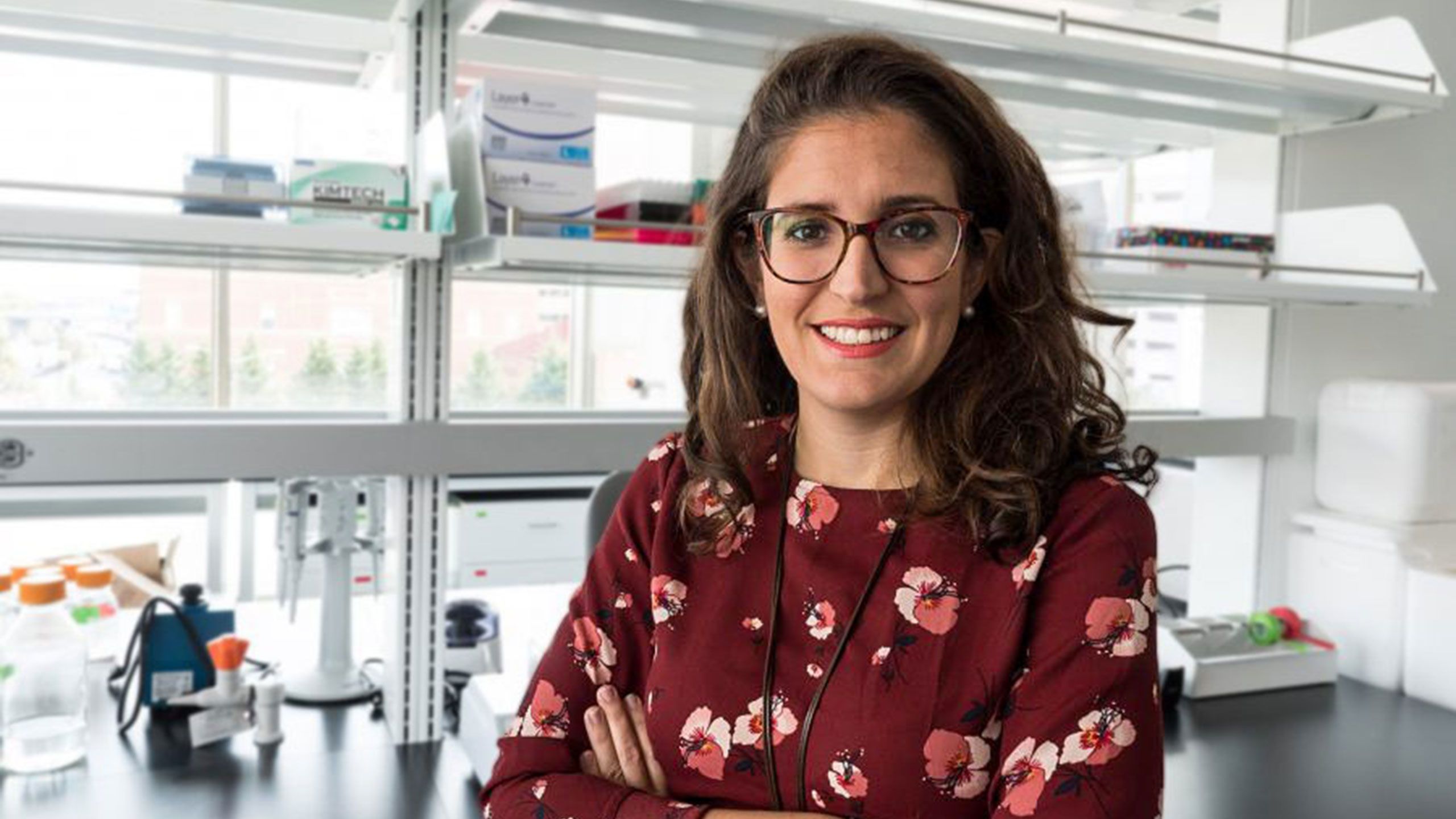An Award-Winning Commitment to Research—and Education
Biology professor’s research focuses on the study of mitochondrial dysfunction in common diseases, but she is also creating opportunities for diverse students to learn

Two grants totaling nearly $3 million have been awarded to Assistant Professor Maria E. Solesio in the Department of Biology at Rutgers University in Camden. Her research aims to clarify the regulation of mitochondrial physiology, including bioenergetics.
The grants—$949,958 from the National Science Foundation (NSF) and more than $1.9 million from the National Institutes of Health (NIH)—will support Solesio in her research to understand how mitochondria—the parts of the cell where most of an organism’s energy is produced—become dysregulated when stress is present. When mitochondria malfunction, cell physiology is disrupted, and this can cause cells to die. The energy from mitochondria is critical to functions ranging from the movement of bacteria to the heartbeats of mammals.
“This chain of deleterious effects is well known,” Solesio said. “But the exact mechanisms that drive mitochondria to dysregulate and eventually fail under stress conditions, such those found in human diseases, are not yet fully understood in mammals.”
Solesio added that mitochondrial inorganic polyphosphate (polyP) could play an important role in these mechanisms. “The bonds of polyP are similar to those of ATP (adenosine triphosphate, the source of energy for use and storage at the cellular level), and because multiple studies show that mitochondria contain large amounts of polyP, it is possible that this compound could be somehow involved in the regulation of cellular bioenergetics, as an alternative or complimentary molecule to ATP.”

Solesio and her team will carry out lab experiments to better understand mammalian bioenergetics. She believes these findings will further the understanding of many plant and animal conditions where mitochondrial health and the generation of energy are impaired. Her long-term goal is to unravel the mechanisms driving mitochondrial dysfunction and failure in human disease. Her hope is to propose the metabolism of polyP as a new and promising pharmacological tool for neurodegenerative conditions where this specific energy dysregulation is a factor.
“I would like to improve people’s lives. Research, at its most basic, is a search to solve a problem. And if that solution helps people to live better, live longer, that is the real worth of the outcome.”

As a scientist, Solesio, of course, understands the immense potential for biomedical outcomes resulting from of her work but that is not her only focus. The motivation for doing her research is also heart-felt.
“I would like to improve people’s lives,” she said. “Research, at its most basic, is a search to solve a problem. And if that solution helps people to live better, live longer, that is the real worth of the outcome.”
An even more immediate ambition for Solesio is that her mission is also educational. While Solesio is committed to having her grant awards increase the knowledge of mitochondrial biology, she is also deeply committed to broadening the diversity of the research workforce.

Solesio’s lab includes Rutgers–Camden undergraduate students from under-resourced communities as lab assistants, as well as providing these students with the opportunity to co-author scientific reviews before graduation. Her lab also involves graduate, doctoral, and post-doctoral students, many of them also belonging to underrepresented communities in biomedical research.
“We are truly a team,” Solesio said. “We are a workforce that reflects many diverse demographics, and the results of our work apply to a diverse world. By including diversity in the lab, we are increasing the impact of the work we do.
“I am very proud of my lab members.”
Vice Chancellor for Research Thomas S. Risch noted that Solesio’s research is potentially game-changing for the understanding and treatment of neurodegenerative diseases. “And importantly, by being awarded grants such as these, Dr. Solesio can engage graduate and undergraduate students directly in cutting-edge research,” Risch said. “This allows students to work side by side with leaders in their field to create new knowledge that benefits us all.”

Design: Douglas Shelton
